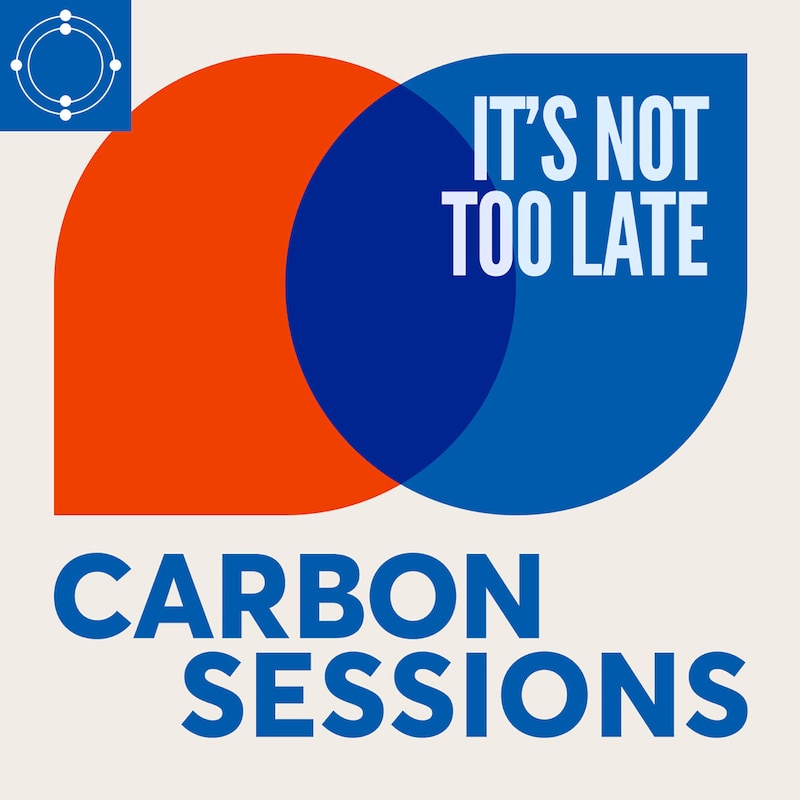
Shownotes
Episode Summary: This episode is an excerpt from a past episode with bioclimatic Architect Jo Petroni
Jo, Jenn and Olabanji talked about Jo’s experience designing new homes with sustainability in mind and what people can do with their current dwellings, without spending as much money as you might think.
Listen to the full episode here
You can link up with Jo if you want to find out more here:
https://jopetroni.substack.com
For more information on the project and to order your copy of the Carbon Almanac, visit thecarbonalmanac.org
Want to join in the conversation?
Visit thecarbonalmanac.org/podcasts and send us a voice message on this episode or any other climate-related ideas and perspectives.
Don’t Take Our Word For It, Look It Up!
You can find out more on page 218, 219, 220, 222, 223, 224 and 225 of the Carbon Almanac and on the website you can tap the footnotes link and type in 213, 229, 265, 111, 222, 235 and 247
-----
Featuring Carbon Almanac Contributors Jo Petroni, Jenn Swanson and Olabanji Stephen
Jo Petroni is from Cordes-sur-Ciel in France, she is a Bioclimatic Architect and helps non Architects get back to the basics of what makes a good home.
From Langley in British Columbia, Canada, Jenn is a Minister, Coach, Writer and Community Connector, helping people help themselves.
Olabanji is from Lagos Nigeria, he’s a Creative Director and visual designer that helps brands gain clarity, deliver meaningful experiences and build tribes through Design & Strategy. He founded Jorney - a community designed to help people stay productive, accountable, and do their best work.
-----
The CarbonSessions Podcast is produced and edited by Leekei Tang, Steve Heatherington and Rob Slater.
Transcripts
Yeah, and I think my question was about like, what does it mean?
Speaker:Like you said, windows and solar panels.
Speaker:It might be the first thing people think of, but what else?
Speaker:. . What does it mean?
Speaker:? Okay.
Speaker:I'm on it.
Speaker:There's a lot.
Speaker:There you go.
Speaker:. So, um, it is a trick question because it all depends on the context of the build,
Speaker:and we've been seeing architecture in our buildings as a sort of, template thing
Speaker:that you can put anywhere in the world and, and it will always act the same.
Speaker:And now we're slowly coming back to the notion that every micro climate
Speaker:is different and Ev each micro climate has their own specificities to
Speaker:which our buildings can, can answer.
Speaker:They can relate to them.
Speaker:And so there's this dance with nature that we're start.
Speaker:To learn again, bit by bit and a lot of the vernacular architecture.
Speaker:So the architecture without architects, the way people build before was anchored
Speaker:in this understanding of nature.
Speaker:But we've sort of lost it in the last couple of years and we're
Speaker:only now starting to, to bring it back, learning from nature.
Speaker:And we're also learning from nature by finding new materials,
Speaker:new natural materials.
Speaker:That benefits us and that don't harm environment.
Speaker:To answer your question, Ji, about the benefit of a sustainable architecture.
Speaker:It's an architecture that makes sense and it makes sense, not for the short term.
Speaker:It makes sense and not just for yourself.
Speaker:It makes sense for the long term and it makes sense for, for everything.
Speaker:We're now starting to think of building.
Speaker:As a whole cycle, the way all materials that come into it, how much carbon
Speaker:do they in it, how much carbon does the construction site in it?
Speaker:And then even more after the natural life cycle of the building is over.
Speaker:How much emissions, how many emissions do you have when you either, uh, led it,
Speaker:the grade by itself or maybe compost in.
Speaker:Or deconstruct and take elsewhere.
Speaker:Reuse or recycle or, So all this life cycle of all the materials Yeah.
Speaker:Is now starting to come back into play.
Speaker:We've been avoiding it within, like we talking about that it doesn't
Speaker:matter because our contract is set.
Speaker:Yeah.
Speaker:For, you know, this period of time and this amount of.
Speaker:And so now we're starting to see the bit of bigger picture
Speaker:and it's absolutely fantastic.
Speaker:And it's healthier for you?
Speaker:It's healthier in, It's inherently better for the user.
Speaker:That makes total sense.
Speaker:Do we have a lot of like energy efficient homes in France?
Speaker:Do you see a lot of them or they're just starting to like, um, pick.
Speaker:Um, cause we, we have like, I don't think we even have them in Nigeria.
Speaker:Um, I don't think a lot of people care.
Speaker:. And, and just to ask where might we start from, right?
Speaker:If we're thinking about, I mean, there are buildings that already exist and we, we.
Speaker:Probably want to make them more energy efficient and, you know, transition
Speaker:from, um, the regular homes to a carbon negative home or one that is
Speaker:just like zero little to zero carbon.
Speaker:How do we get there?
Speaker:What are, are there quick steps that we can take?
Speaker:Um, do we need to break down the beauty and start fresh ? Where,
Speaker:where do we start from?
Speaker:Or we probably just
LYNN:You've been listening to Karbon sessions, a podcast with carbon
LYNN:conversations for every day, with everyone from everywhere in the world.
LYNN:We'd love you to join the carbon sessions so YouTube can share your
LYNN:perspectives from wherever you are.
LYNN:This is a great way for our community to learn from your ideas and
LYNN:experiences, connect and take action.
LYNN:If you want to add your voice to the conversation, go to the carbon.
LYNN:Dot org slash podcast and sign up to be part of a future episode.
LYNN:This podcast is also part of the carbon Almanac network for more
LYNN:information, to sign up for the emails, to join the movement and
LYNN:to order your copy of the carbon Almanac, go to the carbon almanac.org.
LYNN:Be sure to subscribe and join us here again.



